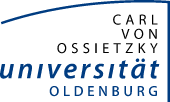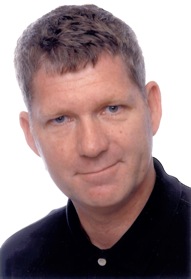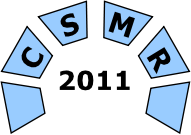
CSMR 2012
Invited Talks
The following talks will be held at CSMR 2011.
- Jens Borchers:
Reengineering from a Practitioner’s View – A Personal Lesson’s Learned Assessment
Wednesday, March 2, 2011, 9:00 to 10:30, A14 HS1 - Hans Vangheluwe:
Promises and Challenges of Model-Driven Engineering
Thursday, March 3, 2011, 9:00 to 10:30, A14 HS1
Reengineering from a Practitioner’s View – A Personal Lesson’s Learned Assessment
Jens Borchers , IT Quality Assurance Manager, SCHUFA Holding AG, Germany
Reengineering in all its facets is now a well recog- nized field within information technology literature and practice for more than 25 years. This paper gives a review of reengineering over this period. It is neither intended as a scientific assessment of the “myriad” of papers ever published about this subject area nor as an extensive review of pros and cons of the various reengineering approaches.
It is rather a personal – and not all objective! – assessment of the author’s experiences gained in this field in various projects and especially in the current position as head of an IT software quality department at one of the most crucial IT information service providers in Germany.
Biography

Jens Borchers studied Mathematics, Physics and Computer Science at the University of Hamburg and received a MSc. in Mathematics.. He started his professional career in the aircraft manufacturing industry at Airbus Industries where he worked in an engineering department and then later joined the systems programming team for the central mainframe.
In the early 1980s he joined ADV/ORGA, one of the most renowned IT services and consulting companies in Germany at that time, where he worked as a systems engineer for database and high volume transaction processing platforms..
In 1988, he was co-founder of Case Consult a company specialized in reengineering large application systems. From mid 1980s he has managed some of the largest reengineering projects in Germany.
Already in the early 1990s he has set up collaborations with off-shore companies in India and has managed several distributed project organisations. In 1994, Case Consult founded its own Indian captive IT application management subsidiary which provided the major workforce for several large application development and reengineering projects in Europe and USA.
Since 2005, Jens Borchers is working as IT manager and member of the core application migration team at SCHUFA, the oldest and largest credit information agency in Germany. In parallel to the application migration, he acted as the SCHUFA project manager for the switchover of the major data centres from one IT outsourcing provider to a new one.
Jens Borchers has published several articles and book contributions, mainly in the area of reengineering, distributed project management and quality assurance methods. He has also co-authored a book about IT offshoring in 2008. He is a member of ACM, GI and IEEE. Ï
Promises and Challenges of Model-Driven Engineering
Hans Vangheluwe, Department of Mathematics and Computer Science, University of Antwerp, Belgium School of Computer Science, McGill University, Montreal, Canada
The complexity of (software-intensive) systems we build as well as the demands that are put on quality, safety, and maintainability of these systems has grown drastically over the last decades. To tackle this complexity, Model-Driven Engineering (MDE) treats models, in various formalisms, as first-class artifacts. Such models may be obtained by reverse-engineering of existing software artifacts, for the purpose of analysis, optimization, and evolution.
Increasingly, however, software is no longer the primary artifact but rather synthesized from more abstract models. In an attempt to minimize "accidental complexity", the most appropriate modelling languages or formalisms are used for each specific (sub-)problem and phase in the development process.
Domain-Specific Modelling (DSM) in particular tries to bridge the gap between the problem domain and the technical solution domain. This has led to a proliferation of the number of (software) modelling languages. Software artifacts, models, but also modelling languages, may and will evolve. This has important repercussions on related artifacts such as instance models and transformations. If MDE and DSM are to be usable at an industrial scale, modelling language evolution has to be dealt with, ideally by (semi-)automatically co-evolving artifacts.
This invited talk will introduce MDE concepts and techniques as well as the challenges these introduce. Particular attention will be paid to modelling language engineering and language evolution.
Biography

Hans Vangheluwe is a professor in the Department of Mathematics and Computer Science at the University of Antwerp, Belgium and an associate professor in the School of Computer Science at McGill University in Montreal, Canada. He holds M.Sc. degrees in theoretical physics and in computer science as well as a D.Sc. from Ghent University, Belgium.
He works on the theoretical foundations as well as on techniques such as meta-modelling and model transformation and tools for modelling and simulation-based design of complex software-intensive systems. Current application domains are automotive, smartphones applications, and Statechart-based modelling, analysis and syntesis of browser-based complex user interfaces. With Juan de Lara, he developed AToM3, A Tool for Multi-formalism and Meta-Modelling, which he uses to prototype new MDE solutions.

